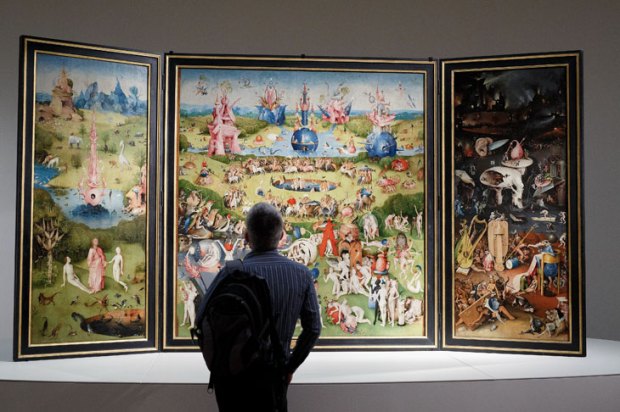As Australia faces a new year of fiscal restraint, sobering economic news and reduced circumstances, it’s interesting to reflect on the difference between the Abbott government and that of Rudd/Gillard/Rudd. One of the starkest metamorphoses is in the presentations of the different Treasurers. Wayne Swan grasped numbers floating in a sea of hope and tried to convince us that the future was still ours to command; Joe Hockey, on the other hand, deals in reality, however awful, because he treats Australians like adults. Anybody remember Julia Gillard thumping the table at international meetings, and lecturing the world about Australia’s miracle economy? Odd how quickly hubris devolves into humility.
When any new government moves from opposition to the Treasury benches, the reversal in roles is a salutary experience. Listening to the many Question Times in the first session of the Coalition government, along with hearing the maiden speeches of morning-fresh new members, was a depressing experience. It reminded me of something which the Conservative MP Sir Arthur Beverley Baxter said back in 1946 in Britain’s House of Commons: ‘A great many persons are able to become Members of this House without losing their insignificance.’
The problem isn’t the intellect, education or standing of the MPs, new or returned, many of whom, I’m sure, are worthy people trying to do a good job for those constituents they now represent. These are people who want to be significant, to make a contribution, but the environment into which they’re thrust makes almost all of them insignificant.
The problem lies with the enforcers of Parliament, with the need to toe the party line. There’s a fear induced into every new member, drummed into them with daily bulletins, that if they say something which goes against their party’s press office instructions issued that morning, they’ll be neutered by the political brand managers or used as a story in the press. And so we hear cliché after cliché, banality following platitude in a cascade of bromides.
What’s happened to the electrifying repartee and debate which were once the highpoint of parliamentary life, to the sorts of interchanges for which Bob Menzies, Gough Whitlam, Fred Daly and the redoubtable Jim Killen became famous? What happened to the acid-mouthed quips of Paul Keating or the intellectual jibes of Diamond Jim McClelland? Why have today’s crop of MPs allowed themselves to be so cowed by the anonymous stand-over merchants and bullies in the press or Leader’s Offices (few of whom have any life or work experiences outside of universities and Parliament)? Why do they allow their speeches to become anodyne, their parliamentary performances so transparently performances, and their presentations so sleep-inducing? Next time you have insomnia, listen to a recording of the confected questions and the melodramatic answers of Question Time, and see how long it takes you to nod off. When he was pondering his presidency, George H.W. Bush searched in vain for the ‘vision thing’. We can only hope that Members find theirs.
I recently visited St Petersburg to research the second novel of my latest trilogy. What an amazing city: five million residents and six million tourists a year. But it was the White Nights festival which caught my heart. Being so far north, it often doesn’t get dark until midnight, and so the residents celebrate with outdoor events. In one square, you’ll hear a full outdoor opera in costume; in another square, jazz; in another, a stage performance of a play. The city is alive from morning to night, a perfect landscape for my characters.
Returning home, I took a cab from the airport to the city, and the driver engaged me in conversation. Eventually, it came down to the ‘where have you just been?’ and ‘what do you do?’ kind of questions. He was interested when I explained that I was in Russia researching a book. ‘But why did you have to go there?’ he asked. ‘Why couldn’t you just Google it on the internet?’ And no amount of explanation would convince him that all my time and effort spent experiencing Moscow and St Petersburg couldn’t have been replicated by half an hour with Wikipedia.
I was in a bookshop recently, signing copies of my latest novel, when a mother holding hands with a child who must have been aged about ten or 11 came up to me, asking me to inscribe her purchase for her. As I was signing, the young lad asked me: ‘Are you the writer?’ I told him I was. ‘Why?’ he asked. And what an interesting question, I thought, smiled, gave the mother her book and reflected on why novelists spend years alone in a room writing their prose.
The New School of Social Research in New York has just published a study showing that reading literary fiction enhances a set of skills and thought processes fundamental to complex social relationships and functional societies. Psychology Professor Emanuele Castano performed five experiments to measure the effect of reading literary fiction on participants’ ‘theory of mind’, which is the complex social skill of mind-reading to understand others’ mental states. It seems that the reason for literary fiction’s impact on the mind is a direct result of the ways in which it involves the person reading. Literary fiction requires intellectual engagement and creative thought from its readers. If I’d known it at the time, that’s exactly what I’d have told the lad. Oh well.
Got something to add? Join the discussion and comment below.
Get 10 issues for just $10
Subscribe to The Spectator Australia today for the next 10 magazine issues, plus full online access, for just $10.
Alan Gold’s latest novel, Bloodline, is published by Simon & Schuster.
You might disagree with half of it, but you’ll enjoy reading all of it. Try your first month for free, then just $2 a week for the remainder of your first year.














Comments
Don't miss out
Join the conversation with other Spectator Australia readers. Subscribe to leave a comment.
SUBSCRIBEAlready a subscriber? Log in